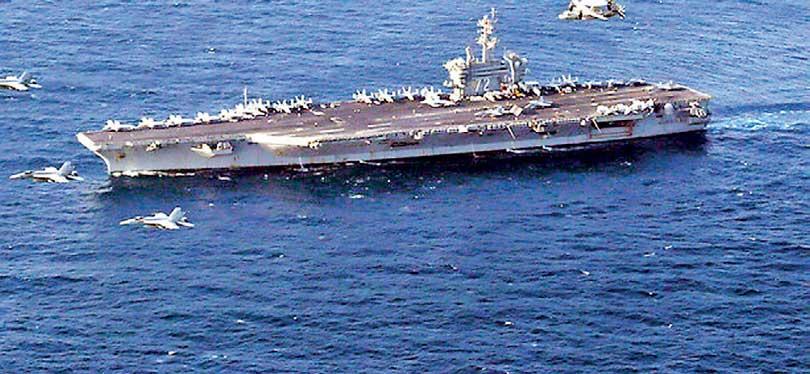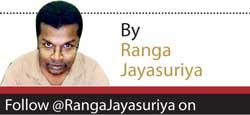Reply To:
Name - Reply Comment

SOFA proposes that US ships, aircrafts be exempt from landing or port fees
 What drives the foreign policy of a country? Realists, the practitioners of the oldest and still the most influential intellectual tradition of international politics have long viewed external pressure as the primary driver of the state’s reaction to its external environment. This belief gave rise to the influential Prussian doctrine known as the ‘primacy of foreign policy’, ie the strict subordination of domestic policy to external demands. Bismarck observed: “foreign affairs are a purpose of themselves, I rate them higher than all other matters.” The rationale was that a state’s survival is dictated by its position in the international system and therefore the country would subordinate its domestic needs and mobilize domestic means for its self- preservation.
What drives the foreign policy of a country? Realists, the practitioners of the oldest and still the most influential intellectual tradition of international politics have long viewed external pressure as the primary driver of the state’s reaction to its external environment. This belief gave rise to the influential Prussian doctrine known as the ‘primacy of foreign policy’, ie the strict subordination of domestic policy to external demands. Bismarck observed: “foreign affairs are a purpose of themselves, I rate them higher than all other matters.” The rationale was that a state’s survival is dictated by its position in the international system and therefore the country would subordinate its domestic needs and mobilize domestic means for its self- preservation.
However, for all practical purposes for the foreign policy to override domestic needs, the external shock has to be extreme and create an acute external vulnerability of the State. Such instances and periods are rare in the current norm-based international order. In times of perceived lowered external security anxiety, domestic considerations overwhelm peripheral systemic ones to dictate the trajectory of the foreign policy. And also at present, in a bout of mass political mobilization, elitist grip on foreign policy is losing.
This, one can see in the Brexit vote; the British voters choose to leave the EU, strangely at a time, rejuvenated Russia was flexing its military muscles in its near abroad and Eastern Europe.
Small developing countries in Asia and Africa, that became independent since 1950s did not have a coherent foreign policy to begin with. That again largely due to these countries not directly vulnerable to a major external shock. Therefore their survival was given. This perceived lower external risk blurred a realist outlook into international politics. Instead, political elites in these countries sought to influence the foreign policy with their idealistic preferences.
Foreign policy in this country is not dictated by the external needs of the country
Foreign policy of those nascent states was exploited to prop up their inflated egos and build larger than life–size images for their leaders. Effectively, those countries also failed to make best out of systemic opportunities created by the bipolar rivalry in the second half of the last century. Their rhetorical policies, which often parroted Nehru’s non-alignment did precious little to advance their national interests. For decades, they produced sub-par economic growths, agrarian economies, coups and cannibalizing dictators and a population living hand to mouth. You can contrast their achievements with feat of less so idealistic and more realistic leaders of development dictatorships in South Korea and Taiwan, monarchists in Thailand, Singapore etc, who exploited those systemic opportunities to advance their national interest.
Keynote speakers at many commemorating events of national leaders and diplomats in this country could well say many things. But, since its independence,
Sri Lanka did not have a coherent foreign policy that was designed to pro-actively make use of emerging systemic opportunities to advance its national interest. That is because the foreign policy is dictated by ideological preferences and domestic political calculations of political parties and leaders.
Foreign policy in this country is not dictated by the external needs of the country. But by the political needs and machinations of political elites of both sides of the House. Since party politics in this country is viewed as a zero sum game, political parties when in the Opposition object to any policy that their rivals in the government would bring in. Such ill -founded and often selfish stratagem is so well entrenched in the political psyche, that if you did not oppose for sake of opposing, it is viewed as capitulation and sucking up.
Sri Lanka is debating another foreign policy decision at the worst possible time. An Acquisition and Cross Servicing Agreement ( ACSA) with the United States was signed in 2007 ( during the Rajapaksa presidency ) and renewed in 2017 after the expiration of its tenure of 10 years. ACSA is a basic defence agreement that the United States has entered with 76 countries (as of 2004). It provides the basic framework for cooperation in logistical exchange such as supplies and services on a reimbursed basis. It does not in any way commit a country to a military alignment.
However, all politics is local and local politics in this country lacks coherence. The opposition politicians, their acolytes and some local pundits are now crying blue murder of the agreement terming it as a gross violation of sovereignty. Some pundits say it was all right when signed under the Rajapaksas as the country was fighting a war against terrorism then. But , now the ASCA is no longer needed.
Some others grip that the original document of 11 pages in 2007 has been expanded to 83 pages including annexures in the new agreement. However, notwithstanding the usual Sri Lankan proclivity for hair splitting arguments into all things, known and unknown, our neighbour India, which has hitherto practised a far more dogmatic version of strategic autonomy in 2016 entered into an expansive version of logistical cooperation with the United States under what was known as Logistics Exchange Memorandum of Agreement (LEMOA), which gave both countries access to designated military facilities of each other for the purpose of refuelling and replacement. In September last year, India and America also concluded the third foundation agreement known as Communication Compatibility and Security Agreement (COMCASA) meant for secure encrypted communication.
Another complaint of local critics is that the 2017 renewal of ACSA does not carry a date of expiration like the previous one which was for ten years. However, either party can withdraw from the agreement after a prior notification, according to the ACSA agreement in 2017.
the USA proposes that its personnel covered in the agreement be granted privileges
Fresh concerns and objections have been raised over a fresh defence agreement, Status of Force Agreement(SOFA), under which the United States seeks to simplify the provisions of ACSA.
Among rather contentious proposals of SOFA, the USA proposes that its personnel covered in the agreement be granted privileges and immunity commensurate to the diplomatic immunity granted under the Vienna convention on Diplomatic Relations. However, a 1995 exchange of diplomatic notes between Sri Lankan and US has originally granted similar immunity to the US military personnel in Sri Lanka. It is the understanding under which such visits have been handled so far.
Tilak Marapana, Defence Minister who was in Washington last month sought amendments to this clause. Among other matters, SOFA proposes US personnel be exempted from paying any taxes, US ships, aircrafts be exempt from paying any landing or port fees , harbour charges etc, and acquisition of services or be free of any custom taxes. It also allows the US armed forces to use radio spectrum and operate own telecommunication networks. US personnel can also enter and travel out of Sri Lanka with an identification issued by the US Defence Department, without passport.
Though many feel a bit overly accommodating in layman’s perspective, all that envisages to simply and streamline a process of cooperation that is already active. However, this is probably the worst possible time to negotiate any foreign policy agreement. Polarization in Sri Lankan politics is in its five year’s high and would get worse as the
election approaches.
In the unfolding changes in the international system, courtesy the rise of China and emerging strategic alignments, Sri Lanka will be harming its national interests, if it keeps all eggs in one basket or no basket at all. It should multi-align itself. Given its economic dependency on China, of which foot prints will grow over the coming decades, cultivating a countervailing security dependency on the United States would be a well–thought- out strategic hedge.